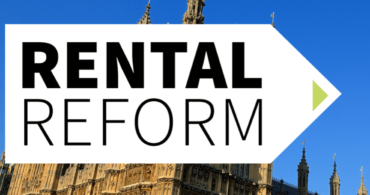Insights

Labour’s New Rental Reforms: A Seismic Shift And Five Solutions for UK Landlords
Labour’s rental reforms are bringing major changes to the UK’s private rental sector, aiming to enhance tenant rights but also creating challenges for landlords. These challenges include the end of no-fault evictions, indefinite tenancies, and rent increase restrictions, leading to uncertainty and potential financial implications for landlords. However, guaranteed rent agencies offer a solution by handling property management and providing a guaranteed rental income, ensuring compliance with new regulations and offering peace of mind to landlords in this changing landscape.
Read More
A Comprehensive Guide to Buying a House to Let
Buying a house to rent out can be a profitable investment with a strategic plan. This guide covers essential steps: planning your strategy, marketing, property management, and legal compliance. Learn to identify target tenants, choose the right location, and maximise rental income while minimising risks.

Understanding Houses in Multiple Occupation (HMOs) for Property Investors
Learn about Houses in Multiple Occupation (HMOs), their licensing requirements, and safety standards. Ensure compliance to avoid penalties, provide safe, affordable housing for tenants and how to maximise your investment return by using guaranteed rent.

Converting a Residential Mortgage to Buy-to-Let: What You Need to Know
If you currently have a regular residential mortgage on your home, are moving out and want to let the existing one out, then you may be wondering if changing to a buy to let mortgage is possible. The answer is there are two main options. One is to obtain consent from your current lender to let your property out, or re-mortgage to a buy-to-let loan.

7 Effective Strategies to Minimise Inheritance Tax and Maximise Guaranteed Rent on Your Property
Reducing inheritance tax on your property is essential to maximise the value passed to your heirs. Learn effective strategies like gifting, trusts, and exemptions to minimise your tax burden.

Landlords Beware: Tenant Referencing Fraud Continues to Rise
Tenant referencing platform Homeppl has revealed how a fraudulent tenant attempted to rent properties from three different letting agents, highlighting the serious challenges landlords are up against. Whilst the referencing technology was able to thwart the attempts to rent, Homeppl has warned that landlords and letting agents using traditional referencing systems would not have been so fortunate.

How to Reduce Your Buy To Let Property Tax Bill
Being a landlord in the UK offers significant opportunities for profit. Learn actionable strategies to reduce your rental property tax bill and maximize your earnings effectively and legally.

The Top Pros and Cons of Being a Self-Managed Landlord
Buy-to-let property investment can be a lucrative way to create a regular income, whether it’s to top up an existing salary or pension, or to act as a main source of revenue. But if you are considering becoming a buy-to-let landlord, the question is, should you go self-managed, or hand over to a property management service to handle everything for you? To make that decision, it’s important to know the pros and cons involved in being a self-managed landlord.

Understanding the Basics of Charging for Tenant Damage
Understanding the difference between wear and tear and actual damage is key to determining fair charges. By following the guidelines outlined in this article, you can confidently navigate the process of handling tenant damage and maintain a successful rental property business.

An In-Depth Explanation of Guaranteed Rent Schemes for Buy To Let Landlords
Discover how portfolio landlords can leverage guaranteed rent schemes to achieve hassle-free property management, secure rental income, and actively contribute to addressing the housing crisis by partnering with local councils.






